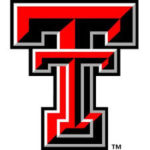| Vocational education teachers, postsecondary | 128,000 |
| Career/technical education teachers, secondary school | 78,700 |
| Career/technical education teachers, middle school | 12,700 |
The largest employers of Technical Instructors were as follows:
| Elementary and secondary schools; state, local, and private | 40% |
| Junior colleges; state, local, and private | 24 |
| Technical and trade schools; state, local, and private | 21 |
| Colleges, universities, and professional schools; state, local, and private | 6 |
Technical Instructors typically work in middle, high, and postsecondary schools, such as 2-year colleges. Others work in technical, trade, and business schools.
Work Schedules
Some Technical Instructors, especially those in postsecondary schools, teach courses and develop lesson plans during evening hours and on weekends.














